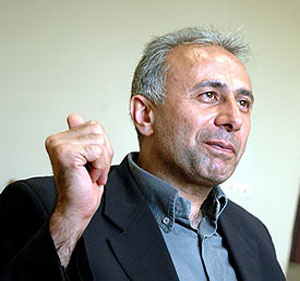Obama will show his cards when the game starts
Calling Iran a problem, is an American dilemma
Ebrahim Mottaqi, university professor and an expert on Iran-U.S. relations discusses Obama’s recent comments.

Ebrahim Mottaqi, university professor and an expert on Iran-U.S. relations discusses Obama’s recent comments. U.S. foreign policy shifts depend on various factors, such as major crisis around the world. In the current situation the climate in Middle East is truly critical. Most importantly, there is an increase in the index of crisis. In this situation, significant shifts in foreign policy aren’t possible. Some future U.S. officials –those who start their term since 21st of January- have to take a stance on Iran, Middle East and other Iran-related international issues. Obama’s vow for change can’t be generalized to problems between Iran and the United States and also U.S. policy in Middle East. Obama’s main concerns relate to economic and social matters inside his country. So we shouldn’t expect any transformation in the field of U.S. national security. The cards Obama will put down in his interaction with Iran aren’t going to change the current air, but to continue the game. The importance of Iran for United States is such that Dennis Ross who formerly held posts related to foreign policy in Clinton administration is returning to work on White House-Iran issues. This choice shows how crucial Iran is considering U.S. security and foreign policy. In Obama’s era chances of interaction will increase, that is, Americans will use interaction as an option to negotiate their political and security struggles with Iran, but that doesn’t mean U.S. will have a policy reorientation. U.S. foreign policy during Bush’s presidency had a dual nature. Bush used fiery rhetoric against Iran, even trying to undermine Iran’s political structure; however, Middle East geopolitical facts and Iran’s weight were such that he was drawn towards pragmatism. This will inevitably continue in the first six months of Obama’s presidency, i.e. no shift in United States’ pattern of behavior in treating Iran. However, a diversity of complicated procedures will be implemented to deal with Tehran. Dennis Ross is an active figure and a veteran in terms of Middle East. He knows Iranian policies and will use both his experience and new developments to deal Iran. But during the recent days the term ’dilemma’ which bears significance within the framework of international relations has been used by Americans. The term implies that Americans don’t ask for confrontation. Indeed, it implies that the democratic structure of the country, its political and executive institutions, and political handlers should seek for ways to solve the dilemma. Naturally, various options will by pondered. This means that for example the military option will not be applied or prioritized; however, it will remain on the table. The military will gather intelligence, consider different strategies for different circumstances, launch maneuvers etc. but all these don’t mean the military option will come to the foreground. It is as simplistic as the belief held by some Iranian analysts and politicians that Obama may transform Tehran-Washington relations, also at odds with realities of international climate.

